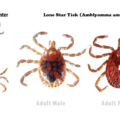How to keep the liver healthy. Follow these 5 rules

How to Keep Your Liver Healthy and Functioning Properly
The liver is a vital organ responsible for numerous functions that are crucial to our overall health. To ensure its optimal function and longevity, it is important to adopt healthy habits and make conscious choices. In this article, we will explore five essential rules that will help you keep your liver healthy and functioning at its best.
Rule 1: Eat a Balanced and Nutritious Diet
A well-balanced diet is key to maintaining a healthy liver. Focus on consuming a variety of fruits, vegetables, whole grains, lean proteins, and healthy fats. Incorporate liver-friendly foods such as leafy greens, cruciferous vegetables, garlic, turmeric, and citrus fruits. Avoid or limit processed foods, saturated fats, and excessive sugar, as they can contribute to liver damage and fatty liver disease.
Here are some tips on how to eat a balanced and nutritious diet for liver health:
- Eat plenty of fruits and vegetables. Fruits and vegetables are low in saturated and unhealthy fats and high in fiber, vitamins, and minerals that are essential for liver health. Aim to eat at least 5 servings of fruits and vegetables per day.
- Choose whole grains over refined grains. Whole grains are a good source of fiber, which can help to protect the liver from damage.
- Choose lean protein sources. Lean protein sources, such as fish, chicken, and beans, are low in saturated fat and can help to maintain a healthy weight.
- Limit saturated and unhealthy fats. Saturated and unhealthy fats, such as those found in fatty meats, processed foods, and fried foods, can damage the liver.
- Limit sugary drinks. Sugary drinks can contribute to weight gain and obesity, which are both risk factors for liver disease.
- Drink plenty of water. Water helps to flush toxins out of the body and can help to keep the liver healthy.
Here are some specific foods that are good for liver health:
- Fruits: berries, citrus fruits, apples, pears, avocados
- Vegetables: leafy greens, broccoli, cauliflower, carrots, tomatoes
- Whole grains: brown rice, quinoa, oats, whole wheat bread
- Lean protein: fish, chicken, beans, lentils
- Healthy fats: olive oil, nuts, seeds
By following these tips, you can help to keep your liver healthy and functioning properly.
Here are some additional things to keep in mind when eating for liver health:
- Cooking methods: Avoid frying foods, as this can increase the amount of unhealthy fats they contain. Instead, opt for healthier cooking methods such as grilling, baking, or steaming.
- Portion sizes: It is important to eat in moderation and avoid overeating. Overeating can put stress on the liver and contribute to weight gain.
- Food labels: When reading food labels, pay attention to the amount of saturated and unhealthy fats, sugar, and sodium. Choose foods that are low in these nutrients and high in fiber and nutrients.
By following these tips, you can help to make healthy choices for your liver and overall health.
Rule 2: Limit Alcohol Consumption
Excessive alcohol consumption can cause significant harm to the liver. To maintain a healthy liver, it is important to limit your alcohol intake or, ideally, avoid it altogether. If you choose to drink, do so in moderation. For men, this means up to two drinks per day, and for women, one drink per day. It is important to note that excessive or chronic alcohol consumption can lead to liver diseases such as alcoholic hepatitis, cirrhosis, and liver cancer. Alcohol is one of the leading causes of liver disease. The more alcohol you drink, the higher your risk of developing liver damage.
The National Institute on Alcohol Abuse and Alcoholism (NIAAA) defines moderate drinking for women as no more than one drink per day and for men as no more than two drinks per day. A drink is defined as 12 ounces of beer, 5 ounces of wine, or 1.5 ounces of distilled spirits. If you already have liver disease, it is important to stop drinking alcohol altogether. Even small amounts of alcohol can damage your liver further.
If you are struggling with alcohol abuse, there are many resources available to help you. Talk to your doctor or a mental health professional about getting help.
Here are some tips for limiting your alcohol consumption:
- Set limits for yourself and stick to them.
- Avoid drinking on an empty stomach.
- Drink slowly and pace yourself.
- Alternate alcoholic drinks with non-alcoholic drinks.
- Don’t drink to cope with stress or emotional problems.
- If you are going to drink, have a plan for how you will get home safely.
By following these tips, you can help to protect your liver health and reduce your risk of developing liver disease.
Here are some additional things to keep in mind about alcohol and liver health:
- Women are more likely to develop liver damage from alcohol than men.
- The risk of liver damage from alcohol increases with age.
- People with other liver diseases, such as hepatitis, are more at risk of developing liver damage from alcohol.
- Taking certain medications, such as acetaminophen, can increase the risk of liver damage from alcohol.
If you are concerned about your liver health and alcohol consumption, talk to your doctor. They can help you assess your risk and develop a plan to reduce your risk of liver damage.
Rule 3: Maintain a Healthy Weight
Being overweight or obese can increase the risk of developing fatty liver disease. To keep your liver healthy, strive to maintain a healthy weight through a combination of a balanced diet and regular physical activity. Engage in at least 150 minutes of moderate-intensity aerobic exercise or 75 minutes of vigorous-intensity exercise each week. Along with exercise, focus on portion control, mindful eating, and maintaining a calorie balance that suits your body’s needs. Obesity is a major risk factor for liver disease, including non-alcoholic fatty liver disease (NAFLD). NAFLD is the most common liver disease in the United States, affecting an estimated 10% of adults. There are a few reasons why obesity is a risk factor for liver disease. First, excess weight can put pressure on the liver, making it work harder. Second, excess fat can build up in the liver, causing inflammation and damage. Third, obesity can lead to insulin resistance, which can also damage the liver. If you are overweight or obese, losing even a small amount of weight can help protect your liver health. The goal is to achieve a healthy body mass index (BMI) of 18.5 to 24.9.
Here are some tips for losing weight and maintaining a healthy weight:
- Eat a healthy diet. This means eating plenty of fruits, vegetables, and whole grains. It also means limiting processed foods, sugary drinks, and unhealthy fats.
- Get regular exercise. Aim for at least 30 minutes of moderate-intensity exercise most days of the week.
- Find a support system. Having friends or family members who are also trying to lose weight can help you stay motivated.
If you are struggling to lose weight on your own, talk to your doctor. They can help you develop a safe and effective weight loss plan.
Here are some additional things to keep in mind about weight and liver health:
- The risk of liver disease increases with increasing weight.
- People who are overweight or obese are more likely to develop NAFLD.
- Losing weight can help improve liver function in people with NAFLD.
- Weight loss surgery can be an effective treatment for NAFLD in some people.
If you are concerned about your liver health and weight, talk to your doctor. They can help you assess your risk and develop a plan to improve your liver health.
Rule 4: Stay Hydrated
Adequate hydration is essential for liver health. Drinking enough water helps flush out toxins and waste products from the body, supporting optimal liver function. Aim to drink at least eight glasses of water per day, and adjust your intake based on factors like climate, physical activity, and individual needs. Additionally, consider incorporating herbal teas and fresh juices for added hydration and liver-supporting benefits. Staying hydrated is important for overall health, including liver health. The liver helps to remove toxins from the blood, and water helps to flush these toxins out of the body.
The amount of water you need to drink each day depends on a number of factors, including your activity level, climate, and overall health. However, most adults should aim to drink about 8 glasses of water per day.
Here are some tips for staying hydrated:
- Drink water throughout the day, even if you don’t feel thirsty.
- Avoid sugary drinks, such as soda and juice. These drinks can dehydrate you.
- Eat fruits and vegetables that are high in water content, such as watermelon, cucumbers, and celery.
- If you are exercising or sweating heavily, drink more water than usual.
If you are concerned about your fluid intake, talk to your doctor. They can help you determine how much water you need to drink each day.
Here are some additional things to keep in mind about hydration and liver health:
- Dehydration can damage the liver.
- Drinking plenty of water can help to improve liver function.
- People with liver disease are more likely to become dehydrated.
- If you have liver disease, it is important to talk to your doctor about how much water you should drink each day.
By following these tips, you can help to keep your liver healthy and functioning properly.
Toxins and chemicals can place a burden on the liver and impair its function. Minimize your exposure to harmful substances such as pesticides, household chemicals, and pollutants. Use natural and eco-friendly cleaning products, ensure proper ventilation in your living and working spaces, and take necessary precautions when handling chemicals. Protecting yourself from exposure to toxins will help safeguard your liver’s health.
Here are some harmful substances that can damage the liver:
- Alcohol: Alcohol is one of the leading causes of liver disease. It can cause inflammation and scarring, which can lead to liver failure.
- Certain medications: Some medications, such as acetaminophen, can damage the liver if taken in high doses or for a long period of time.
- Hepatitis viruses: Hepatitis A, B, and C are viruses that can damage the liver. They can be spread through contact with blood or other bodily fluids.
- Toxins: Exposure to certain toxins, such as those found in some industrial solvents, can damage the liver.
- Obesity: Obesity is a major risk factor for non-alcoholic fatty liver disease (NAFLD). NAFLD is a condition in which fat builds up in the liver.
- Autoimmune diseases: Some autoimmune diseases, such as primary biliary cholangitis and primary sclerosing cholangitis, can damage the liver.
Here are some tips for avoiding exposure to harmful substances:
- Do not drink alcohol in excess.
- Take medications as prescribed by your doctor.
- Get vaccinated against hepatitis A and B.
- Avoid contact with toxins.
- Maintain a healthy weight.
- Manage autoimmune diseases.
By following these tips, you can help to protect your liver health and reduce your risk of developing liver disease.
Here are some additional things to keep in mind about harmful substances and liver health:
- The liver is a resilient organ, but it can be damaged by exposure to harmful substances.
- The damage caused by harmful substances can be irreversible.
- If you think you may have been exposed to a harmful substance, it is important to see a doctor immediately.
If you are concerned about your liver health and exposure to harmful substances, talk to your doctor. They can help you assess your risk and develop a plan to protect your liver health.
Keeping your liver healthy is essential for overall well-being. By following these five rules—maintaining a balanced diet, limiting alcohol consumption, maintaining a healthy weight, staying hydrated, and avoiding exposure to harmful substances—you can support your liver’s health and reduce the risk of liver-related diseases. Remember, the liver is a resilient organ, but it is important to prioritize its well-being through conscious lifestyle choices. If you have any concerns about your liver health or specific conditions, consult with a healthcare professional for personalized guidance and advice.






